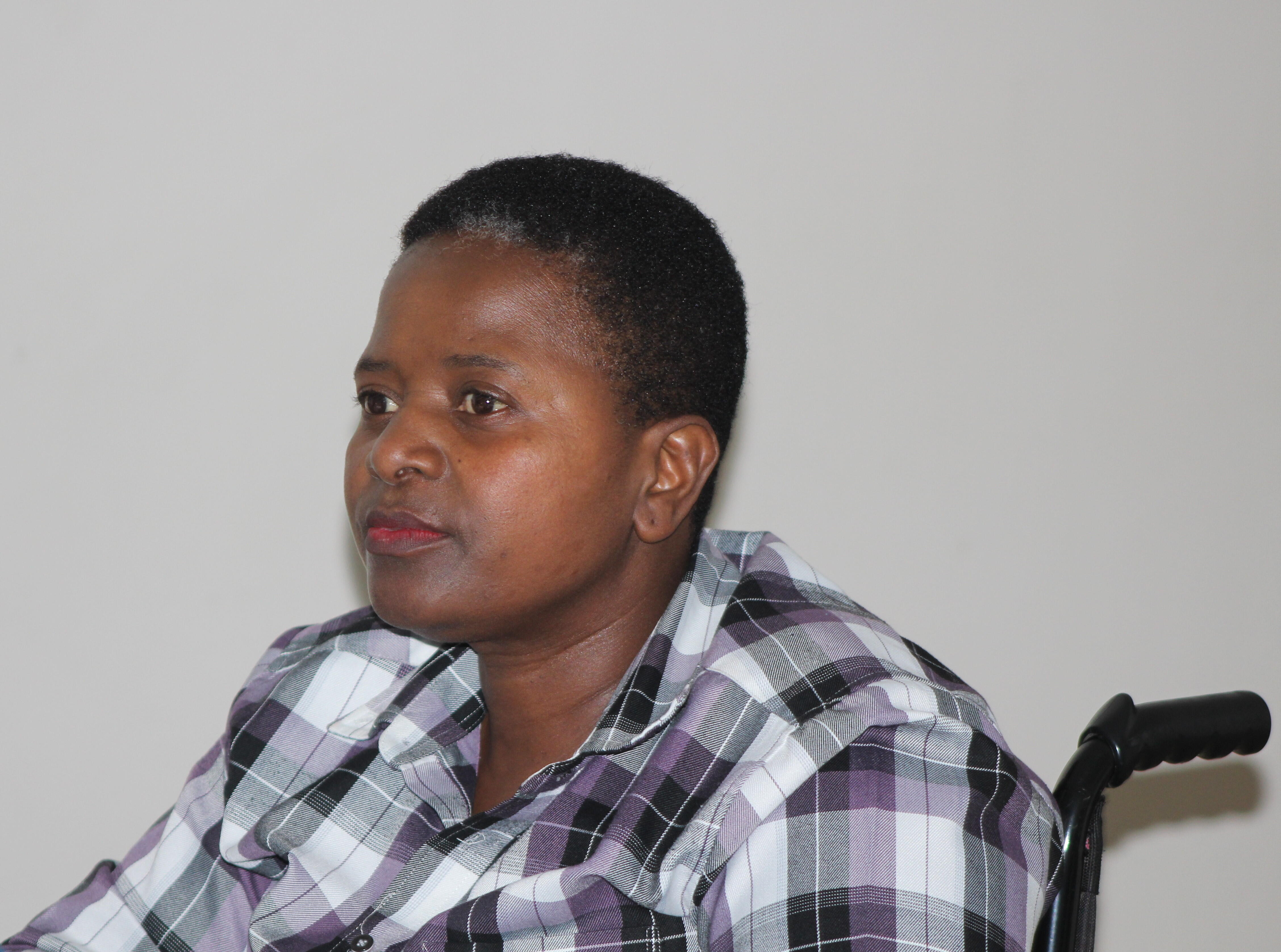“People need to understand that there’s so much ability within disability and should therefore treat persons with disabilities with dignity just like they would treat others,” stated Nozizwe Mvubu as she reflected on the challenges faced by persons with disabilities in accessing essential health services.
Mvubu is a young woman who works with person’s intellectual disabilities through Autism Eswatini. She understands the challenges, needs, abilities and myths people say about those with disabilities particularly when it comes to accessing health services.
“When it comes to sexual reproductive health, persons with disabilities face many challenges. Most of the facility structures do not accommodate persons with disabilities. This makes it difficult for us to access essential health services such as family planning,” stated Buyisile Masuku; a woman with a physical disability.
Masuku added that women with disabilities were more vulnerable to gender based violence therefore had a huge need for information on the prevention of gender-based violence.
“The problem starts when your partner thinks they are doing you a favour when they love you. That’s why we need to be equipped with GBV information so that we can share with our partners and among other women with disabilities. That can strengthen both prevention and reporting of GBV by persons with disabilities.” Masuku explained.
To ascertain the readiness of health facilities to provide SRH services to persons with disabilities, UNFPA supported the Ministry of Health together with the Family Life Association of Eswatini (FLAS) to conduct a rapid assessment. The key findings of this rapid assessment were disseminated on the 22nd December 2020 at the George Hotel in Manzini. This was attended by representatives from the different disability groups in Eswatini such as physical, intellectual, visual impairment as well as parents of children with disabilities.
The Director of the Sexual Reproductive Health Unit, Bonisile Nhlabatsi lamented on the notable inequalities on access to SRH services in health facilities in Eswatini.
“Persons with disabilities face more challenges than others when it comes to accessing SRH services. This study will help in identifying those disparities in the health sector and help us move towards ensuring Universal coverage of sexual and reproductive health services,” Nhlabatsi mentioned.
The Programme Manager further explained the negative impact of such shortfalls in the lives of people and in the government’s fight against maternal mortality.
“Access to sexual reproductive health services is very important for every person; with or without disabilities. Lack of access to SRH services may lead to complications such as still births, stunting of children or even proper mental, physical or intellectual development.”
In sharing the key findings, Nompumelelo Mthunzi the M&E Officer at the SRH Unit stated that availability of amenities in health facilities and language barrier between the service health worker and clients were the major concerns.
“About 74% of the HCWs are not trained on how to serve PWDs in areas such as sign language and in handling mentally challenged clients or those with albinism. Shockingly only 4% of the facilities had parking spaces with 9% having toilet facilities designated for people with disabilities,”
Mthunzi shared. In terms of access to SRH services and information, persons with disability face some difficulties.
“Only 1 facility has a sign language interpreter and there are no signage posts or reading material written in braille for the visually impaired. This makes it difficult for PWDs to describe their illnesses to HCWs and they end up not getting the help they need.”
The study also made specific recommendations on how the identified challenges faced by persons with disabilities could be rectified. These include capacity building for HCWs on sign language, psychology and use of braille as well as infrastructure upgrade to improve accessibility of facilities and amenities within the health facilities.
According to the 2017 Housing and Population Census, persons with disability make 13% of the total population estimated at 1,093 238. These face a myriad of challenges including unemployment and lack of access to sexual reproductive health services. The implementation of the recommendations suggested by this study would see the country make great strides towards ensuring that no person with disability is left behind in accessing sexual and reproductive health services.


